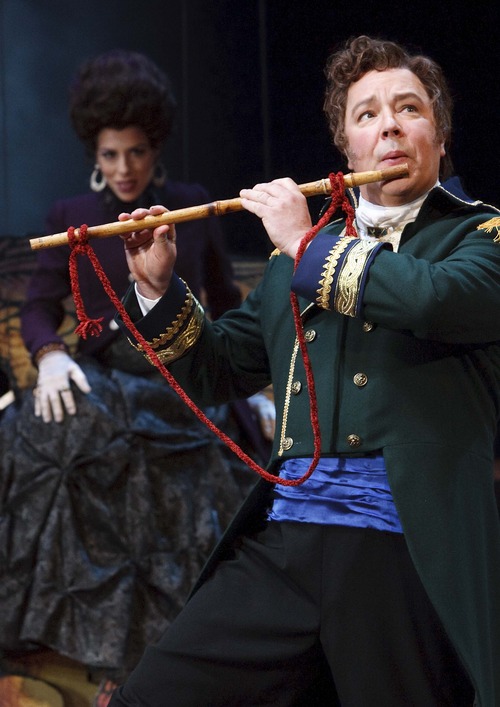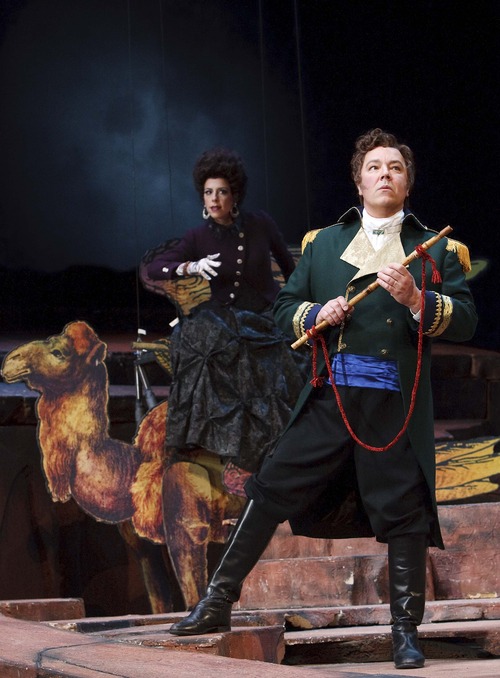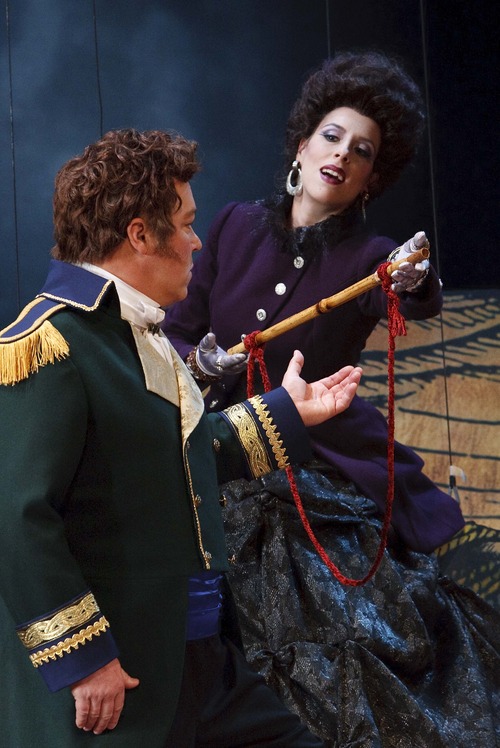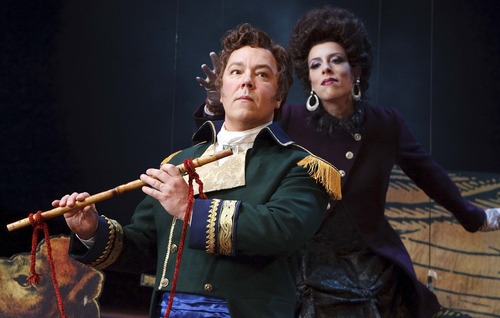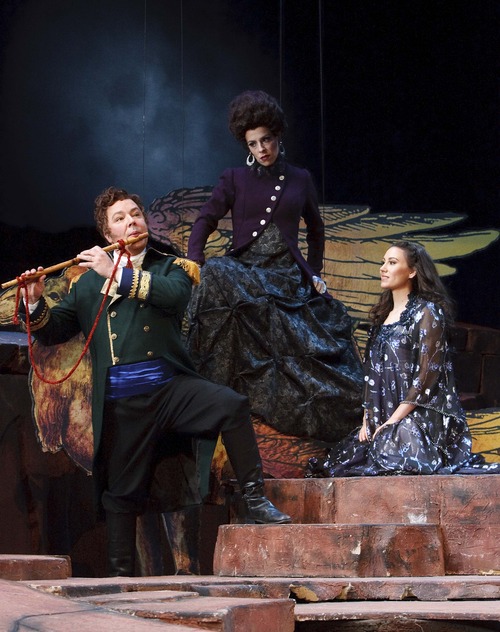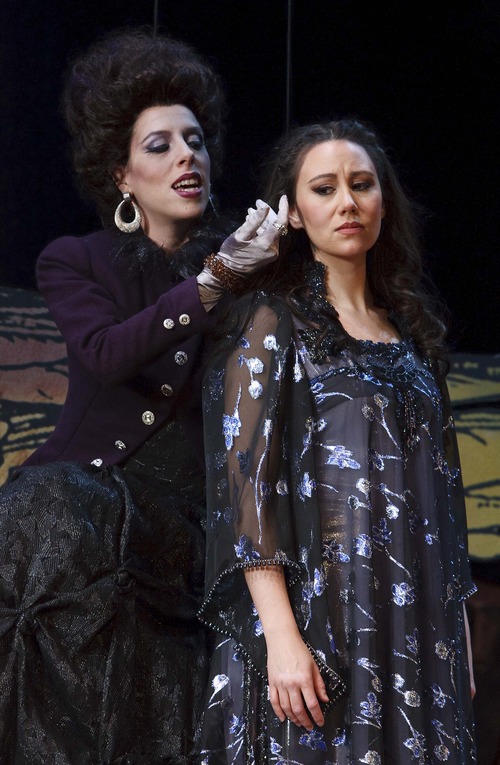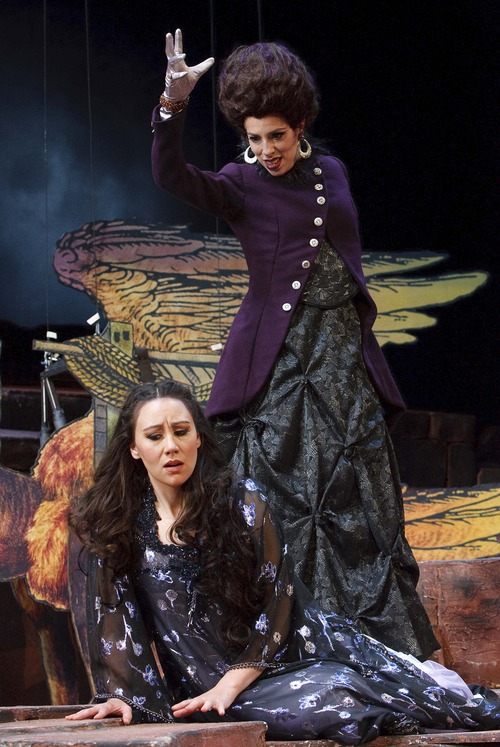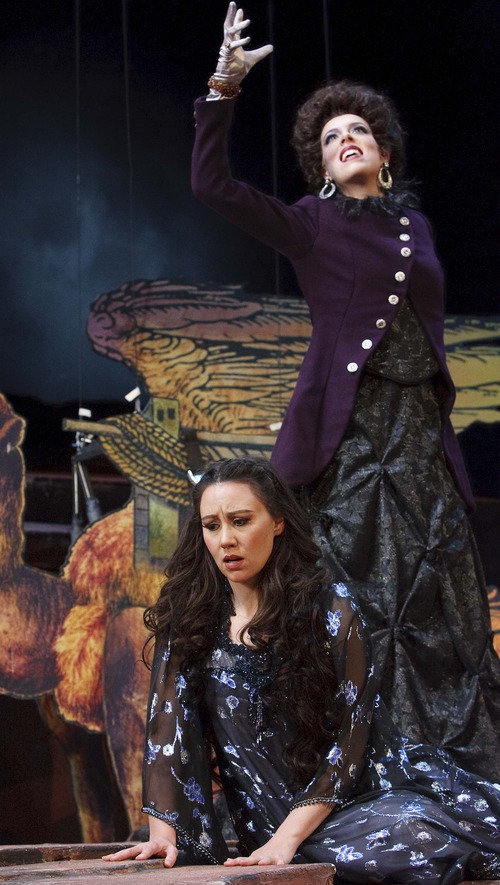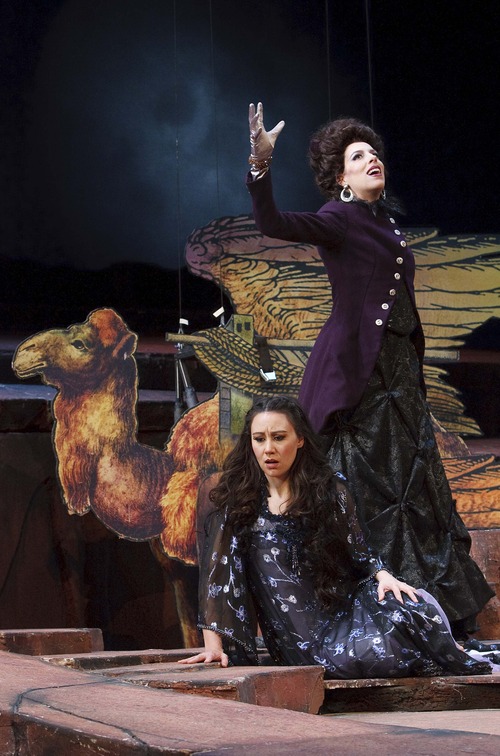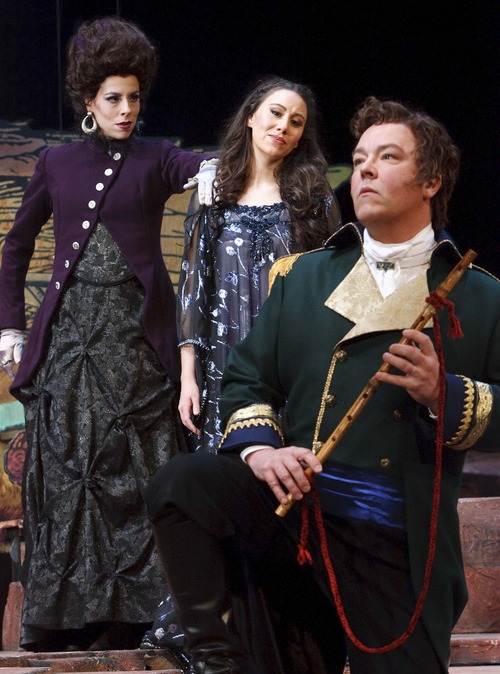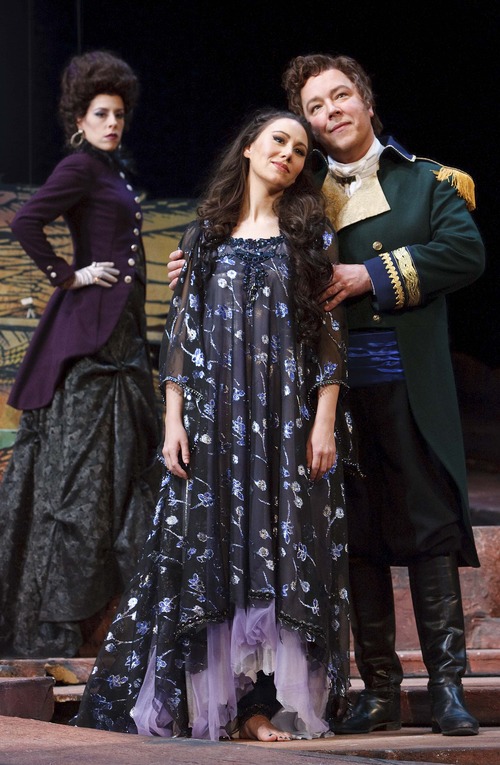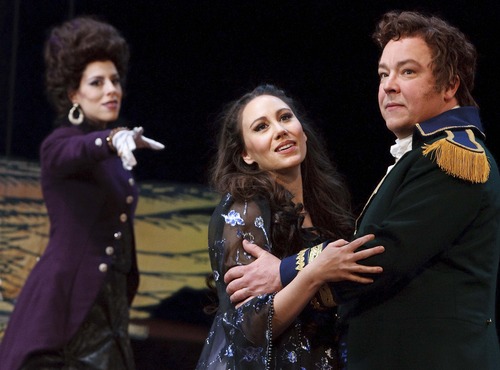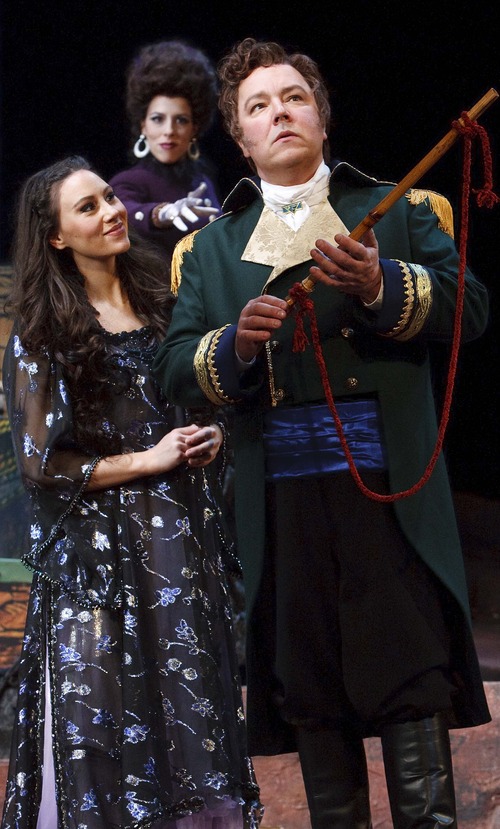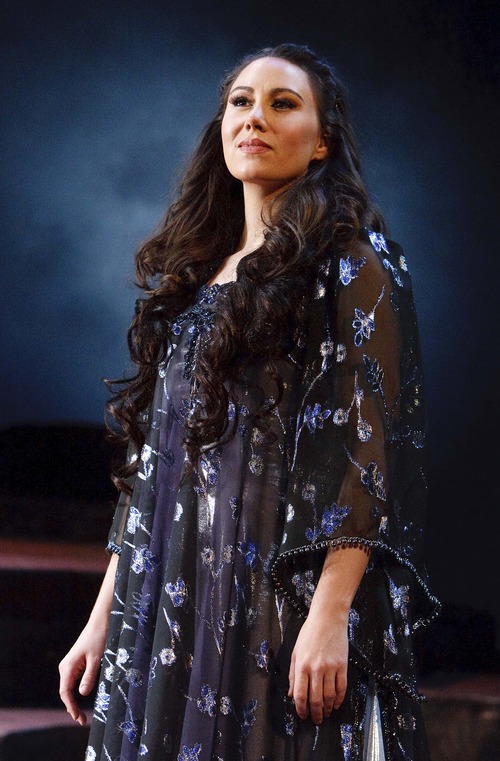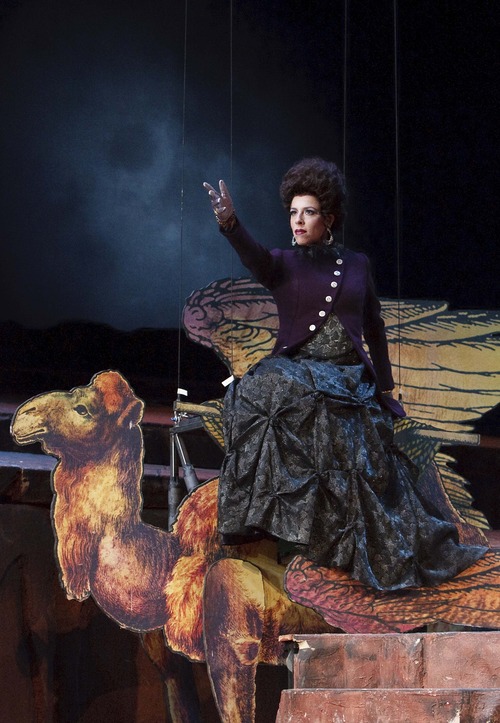This is an archived article that was published on sltrib.com in 2013, and information in the article may be outdated. It is provided only for personal research purposes and may not be reprinted.
"The Magic Flute" is an operatic oddity. It's hard to think of another opera that commingles low comedy and lofty ideals to such a degree.
Therein lies the opera's charm, says soprano Anya Matanovic, who will play Princess Pamina in Utah Opera's production of the Mozart favorite.
"There's a wonderful balance between magic and playfulness and honesty," Matanovic said. "There is lots of magic and spirituality, but it was written for the general public — it was written to be enjoyed and be fun and reach out to all ages. It will make kids and adults giggle, hopefully. And it has some of the most sublime moments of music Mozart wrote."
Two of her favorite examples are the introduction of the three boys who act as guides and the chorus sung by the priests of Isis and Osiris. These are two scenes in which her character does not even appear, and which wouldn't show up on an album of Mozart's greatest hits.
"Everyone will recognize Papageno's aria and the Queen of the Night, of course; that's why people come," Matanovic said. "But one thing I love about pieces like this are the little magical moments that aren't the most obvious."
Conductor Tim Long also relishes the unheralded moments in "The Magic Flute." He said he's been "astounded every day" by the wealth of detail in the opera's score as he prepares to lead the singers and Utah Symphony.
"We all think we know it," Long said of Mozart's score. "It has such popular melodies, it's so famous, and once we hear it over and over and over, we start hearing it in our head and it makes us deaf to what's just under the surface. If we can be completely present and really actively listening, it becomes a startling piece. … You can't only wait for the high F's. The soul of the piece is in the smallest moments and silences as well."
—
Whimsical and exotic • The opera's first act concerns the adventures of Prince Tamino and his sidekick, the lovably loopy birdcatcher Papageno, as they rescue Pamina from captivity. Whimsy gives way to solemnity in the second act, when our three heroes are initiated into an ancient order modeled on Freemasonry.
The look of this Utah Opera production reflects what Europeans in the late 18th century might have imagined Egypt to be like, explained stage director Paul Peers. The redrock set was constructed for the company's 1996 production of "Dreamkeepers," an opera commissioned to commemorate the centennial of Utah's statehood. And most of the costumes are from a 2006 production of "The Magic Flute."
"The [Queen of the Night's attendants] are dressed as Bollywood dancers; the monks are from western Africa," Peers said. "It all adds to the richness and exoticism. The disparateness unifies the piece."
"It's sophisticated, but there are moments that are purely fun," said tenor Robert Breault, who directs the University of Utah's opera program and will play Tamino in this production. "There's a chiaroscuro in the whole piece."
Baritone Daniel Belcher, who will play Papageno, agreed that balance is the key to "The Magic Flute."
"It's high art and low art at the same time, but it's all art," he said.
—
Women's equality • Belcher noted that Mozart and his librettist, Emanuel Schikaneder (who played Papageno in the opera's premiere), gave Tamino not one but two counterparts: Papageno, who is from a lower social class, and Pamina, a woman. "I wonder what people thought of that — equality between the classes and equality for women — in 1791," he said.
The singers agreed the opera has moments that don't exactly seem woman-friendly — but, then again, one easily could argue that Pamina is the hero of the piece.
"Pamina herself, as a woman, knows she does not deserve to remain in the domain of ignorance and darkness," Peers said. "Mozart and Schikaneder [were saying] a man and woman can attain enlightenment as a couple. That pulls the misogyny rug from under the opera."
"At the end of the day we're just people, all of us," Belcher said of the opera's message. "We have different goals in life, but we still have goals. We don't all have to exist on the same plane, but we can find individual fulfillment in whatever we do. It's an interesting dramatic piece in the guise of a fairy tale, but don't we learn everything from fairy tales?"
Magical Mozart
Utah Opera presents Mozart's "The Magic Flute," sung in German with supertitles and spoken dialogue in English.
Where • Capitol Theatre, 50 W. 200 South, Salt Lake City.
When • Opens Saturday, March 16, at 7:30 p.m.; evening performances continue March 18, 20 and 22, with a 2 p.m. matinee March 24.
Running time • About 2 1/2 hours, including intermission.
Tickets • $15 to $93 ($5 more on performance day) at 801-355-ARTS, the box office or http://www.utahopera.org.
In a nutshell • An earnest young couple and their wacky sidekick journey toward enlightenment in an exotic land where almost nothing is as it seems.
Learn more • Utah Opera principal coach Carol Anderson will lecture one hour before curtain; artistic director Christopher McBeth will hold a Q&A session immediately after each performance. These events, free to ticketholders, take place inside the theater.


